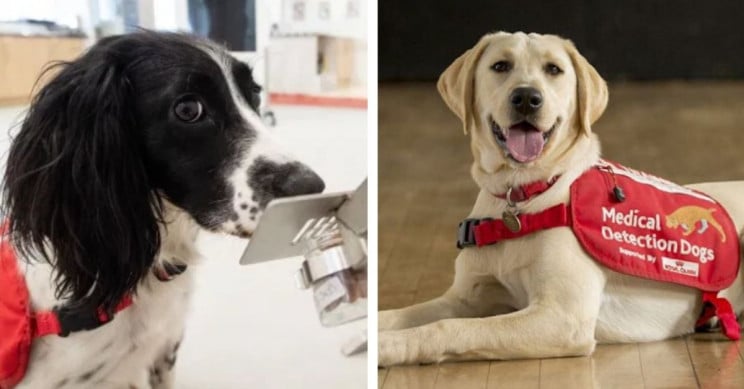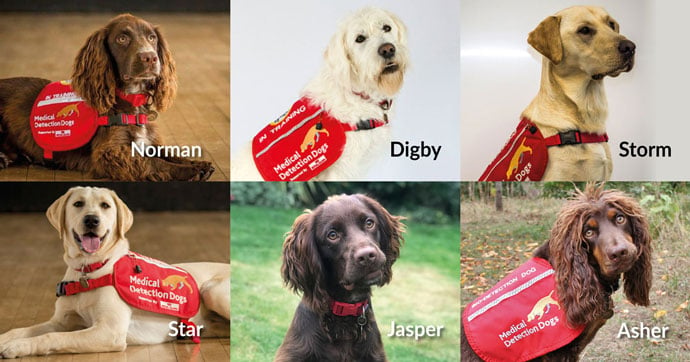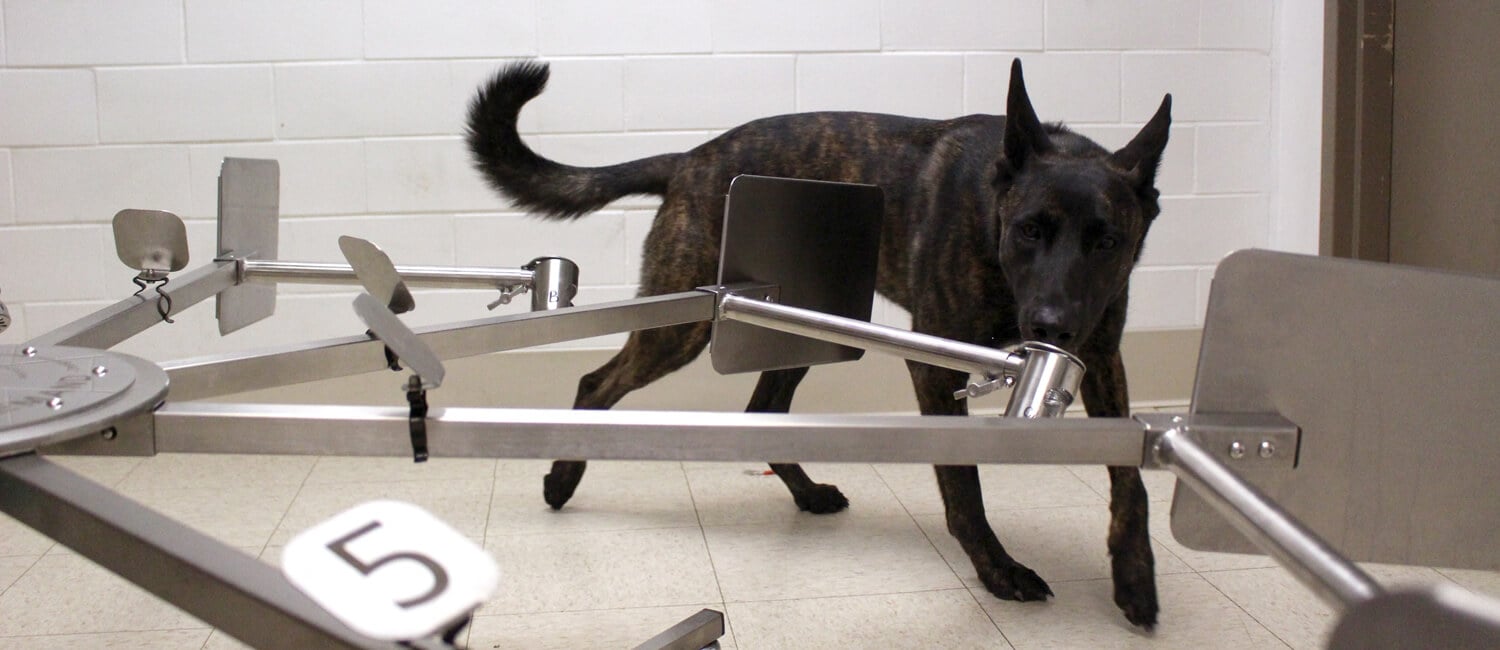
One of the biggest challenges to battling the rapid spread of COVID-19 is identifying and isolating people who are infected before the symptoms, which usually take between 3 to 13 days, surface. Now, frontline workers may get some help from canines who can "sniff out" the disease even when the patient is asymptomatic, meaning he or she never shows any of the traits associated with COVID-19.
Bio-detection dogs are not a new idea. In the past, canines have been successfully trained to detect several deadly diseases long before the patients displayed any symptoms. These include identifying those with stomach cancer by smelling their urine samples in Japan, and those afflicted with malaria from their foot odor in the Gambia.
Dogs are the natural animal of choice due to their extremely sensitive noses, which are equipped with 300 million scent sensors. In comparison, humans only have 6 million scent sensors! Pooches also have a second smell receptor that we do not possess. Located at the bottom of their nasal passage, the vomeronasal, or Jacobson's organ, is powerful enough to smell generally undetectable odors. "We could detect a spoonful of sugar in a cup of tea, but a dog could detect a spoonful of sugar in two Olympic-sized swimming pools," Professor James Logan, head of the department of disease control at the London School of Hygiene and Tropical Medicine, told The Guardian. "It's that level."
The key to the enlisting bio-detection dogs lies in finding out if COVID-19 patients emanate a distinct odor. Logan and his team, who have partnered with a non-profit called Medical Detection Dogs for this all-important project, are optimistic there is. The expert says, "We've had a lot of people contact us, particularly medical workers, people that are in care homes, and people in hospitals who are saying, 'We can smell it. I can walk into a room, and I can tell there are patients in here with Covid-19.' We've got to take that with a pinch of salt, because that's not scientific proof, but it gives us further hope that it does exist."
To confirm the anecdotal evidence, the researchers have dispatched sterilized socks and stockings — which absorb and retain body odors — as well as face masks to over 3,000 asymptomatic frontline workers in the UK. The hospital staff has been asked to wear the clothing for a pre-determined period of time before returning everything to Logan's lab for analysis. "We'll end up with a very high number of samples from people who are uninfected, and a smaller group of samples from people who are infected," the researcher told The Guardian. "And that's fine. Because we need a lot of controls. We need a lot of background noise for the dogs to ignore."

Meanwhile, Medical Detection Dogs is training six dogs — an assortment of Cocker Spaniels, Labradors, and one Labradoodle — to detect unique smells with the help of a tennis ball. The non-profit's co-founder, Dr. Claire Guest, says the canines' sensitive noses will not just be smelling the tennis ball, but also all residual scents, even from items that may have touched the ball for less than 30 seconds.
Once the dogs are ready, Logan's team will cut up the labeled samples of socks, stockings, and face masks into small pieces, and send them to the dogs and their handlers. If COVID-19 does have a distinct smell, and the dogs can successfully identify the items worn by those that have the disease, the trial will move to the next phase. This will involve taking the canines to identify infected people in high-density public areas, such as airports or train stations.
"If you've got a plane with 500 people coming off, 10% may be asymptomatic or pre-symptomatic," says Guest. "The dog can quickly say, 'Bang, bang, bang. You, you, you.' It's a 0.5-second sniff. The dog won't make the final decision. The person will have a test. But at the moment, there's no other way of rapidly screening people like that – especially asymptomatics."

Logan and Guest are not the only researchers training dogs to detect COVID-19. A team of multi-disciplinary scientists led by Dr. Cynthia Otto, professor of Working Dog Sciences and Sports Medicine at the University of Pennsylvania, is also working on a similar project. The researchers began in early May 2020 by exposing eight Labrador Retrievers to COVID-19 positive saliva and urine samples in a laboratory setting for three weeks. The process, called odor imprinting, was meant to enable the dogs to identify any distinct smell associated with the disease.
The scientists have now embarked on the next phase of the trial, which entails exposing the trained dogs to new human samples — some with traces of coronavirus and others without. If the Labradors can detect the infected samples accurately, they will be put to work in busy public areas to help identify people with COVID-19.
Though the bio-detection dogs will undoubtedly help, the best way to avoid the infectious disease is by taking the simple precautions recommended by experts. These include washing hands frequently, keeping at least a six-foot distance from those not in your immediate social structure, and wearing a face covering in public places.
Stay safe and healthy! We are all in this together!
Resources: medicaldetectiondogs.org.uk, allianceforscience.cornell.edu, vet.upenn.edu
